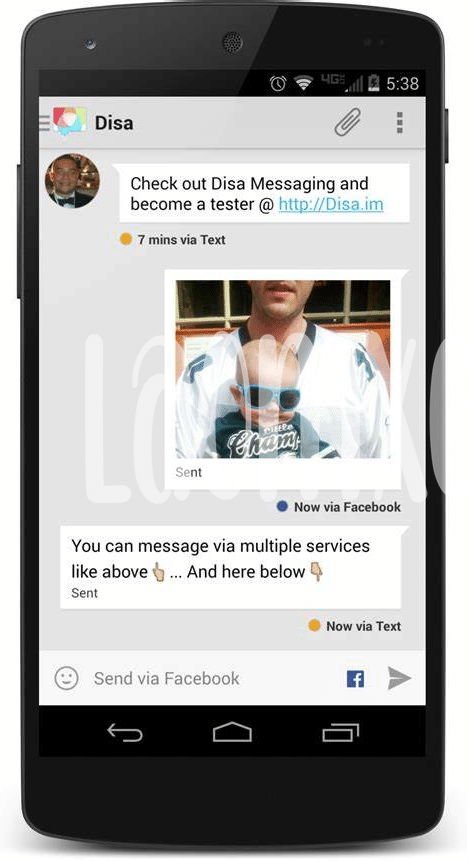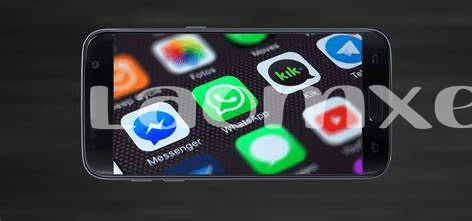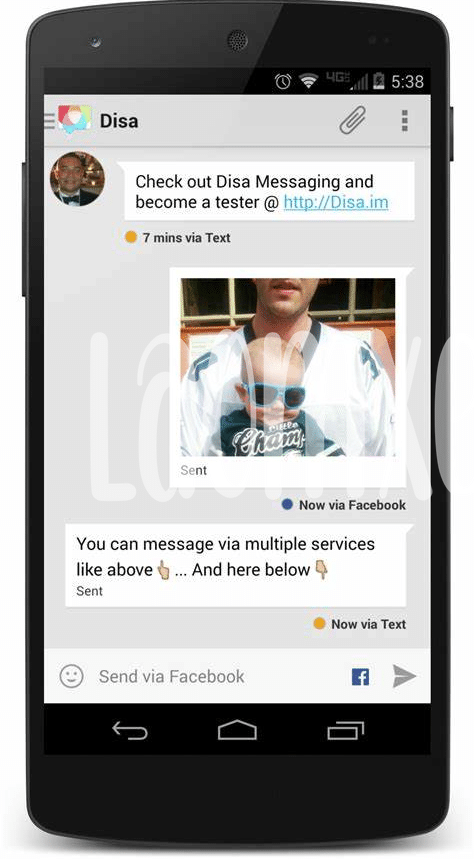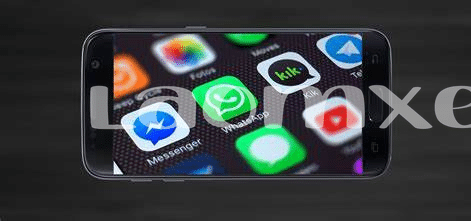- Privacy Showdown: Signal Vs Telegram 🕵️
- Feature Face-off: Comparing User Experience 🎨
- Popularity Contest: User Numbers and Growth 📈
- Security Standoff: Encryption and Data Protection 🔒
- The Cost of Free: Monetization and Ads 💸
- Community and Support: Building Relationships 👥
Table of Contents
TogglePrivacy Showdown: Signal Vs Telegram 🕵️
When diving into the digital world where whispers should stay whispers, the quest for the most discreet messenger app often lands us in the ring with two champions: Signal and Telegram. Both apps pledge to keep your conversations under wraps, but the real question is, who does it better? Imagine two secret vaults, both promising to keep your most private chats away from prying eyes, yet they go about their secret-keeping in different ways. Signal, with its robust open-source protocol, covers every message with a lock-and-key approach that ensures only you and your chat buddy can peek into the contents. It’s like having an uncrackable code for every conversation. Telegram offers a cozy cocoon too, but with a twist. Their standard chats are secure, but for top-secret talks, you’ve got to jump into their “Secret Chats” feature, which brings in encryption that would put a smile on a spy’s face.
Now, it isn’t all about the cloak and dagger; there’s also that soft pat on the back knowing that neither of these apps keep records of your conversations. Think of Signal as the friend who forgets what you said right after you say it—memory like a sieve in the best possible way. Telegram, while also not holding onto your chat history, takes a tiny peek at your contact list to make connections easier.
If you’re weighing one against the other, take a peek at a simple breakdown condensed into a handy table:
“`html
| Feature | Signal | Telegram |
|---|---|---|
| End-to-End Encryption | Yes, by default 🛡️ | Yes, in “Secret Chats” 🤫 |
| Data Collected | None, almost forgetful 🚫 | Contacts, for smoother sailing ⛵ |
“`
Choosing between Signal and Telegram is like picking between a secret door that always locks itself or one that requires you to turn the key. The decision is yours, much like the choice to keep your conversations just between the intended eyes and ears. Let’s not forget, in a world of oversharing, having a place to whisper quietly is a rare treasure indeed. 🌐🔐
Feature Face-off: Comparing User Experience 🎨
Imagine you’ve got Signal and Telegram side by side on your phone, ready to send a message. With Signal, it’s like having a private conversation in a quiet room, simple and secure. You fire off a text and know it’s wrapped up tight, just for the recipient’s eyes. The design is neat and tidy; nothing fancy, but it does the job well. You’ll find all the basics – sending texts, making calls, and even sending disappearing messages, which is like whispering a secret that vanishes into thin air.
Switching over to Telegram feels a bit like stepping into a bustling cafe. It’s lively and packed with extras. You can send messages, sure, but you can also dive into groups with thousands of people, create polls, or even follow channels for updates on your favorite topics. And if you’re into personalizing your chats, you can switch up your message backgrounds with new designs to suit your mood. If you’re curious about the latest conversation styles for your device, check out “which is the best theme app for android in 2024 updated?” – it’s a cool way to keep your screen looking fresh. Telegram’s got this playful vibe going on where you can send stickers and gifs, making chatting feel more like you’re trading fun little collectibles with friends. 🎨📱🙂
Popularity Contest: User Numbers and Growth 📈
In the digital arena where messenger apps battle for users’ attention, two champions have emerged, each with its loyal following – Signal and Telegram. With both platforms offering a similar promise of connecting people, it’s the number of active users and the rate at which this number grows that truly reflects their current standing in the competitive landscape 📈. While Signal has seen a significant surge in downloads after endorsements from high-profile tech figures, catapulting it to the spotlight, Telegram prides itself on a consistent increase in its user base, with millions across the globe relishing its blend of simplicity and functionality 🌍. Telegram’s user-friendly approach has garnered a robust international community, yet Signal’s privacy-first philosophy is fast gaining traction in an era where digital security is top of mind for many. This tug-of-war for users is not just about numbers – it’s a reflection of shifting priorities and the evolving demand for secure communication tools in our increasingly interconnected world 🔄. Whether one appreciates the rapid growth of a platform that puts privacy at the forefront or the steady expansion of a service focused on rich features, each app’s popularity tells a story of what users value most in their digital interactions today.
Security Standoff: Encryption and Data Protection 🔒
When you’re picking a messenger app, think of it as choosing a trusty guard for your private chats. Imagine your messages are locked in a safe; that’s what encryption is like. Signal is like a vault with a lock that only you and the receiver have keys to; this is known as end-to-end encryption, and it’s for every message. On the other hand, Telegram is like a secure room where most things are safe, but the special chats, those ‘secret’ ones, get the super lock, similar to Signal’s standard. Think about where you keep your family jewels or that superhero costume you don’t want anyone to find; that’s the kind of protection we’re talking about. Plus, both apps have cool features that keep prying eyes out, like self-destructing messages – kind of like those spy movies where the message goes poof after you read it! 🎩💥
But, hey, it’s not just about locking things up. What happens if someone tries to get sneaky, like a nosy neighbor peering over the fence? Both apps work hard to stop intruders. And although Signal’s encryption is open-source – that means anyone can check how secure it is – Telegram’s isn’t totally open for scrutiny. 🕵️♂️🔍
So, before you decide which guard you trust, consider your jewels. Are they okay in a room with a sturdy lock, or do they need that unbreakable vault? Once you’ve decided, whether you’re swapping recipes or planning surprise parties, your secrets will be safe. Oh, and speaking of keeping things fresh and safe, if you’re into customizing your digital world, check out which is the best theme app for android in 2024 updated? It’s the perfect way to make sure your phone stays as unique and secure as your messages. 📱✨
The Cost of Free: Monetization and Ads 💸
When you’re not paying with your wallet, you might be paying with your eyes. That’s the deal with many online services, where ads can pop up like unexpected guests at a party 🎉. Signal stays away from this hustle entirely, relying on donations to keep things running smoothly without ads. It’s like a park that’s free to enter, but sometimes they ask for a donation to keep the flowers blooming. People who value a clean, uninterrupted chat landscape often tip their hats to Signal for keeping their screens ad-free.
On the flip side, Telegram takes a different path. They’ve promised to stay free forever but have flirted with the idea of adding non-intrusive ads in massive public channels 🌐. It’s a bit like those billboards on the side of a highway; they’re there, but you can keep your eyes on the road. In addition, they’ve been cooking up some premium features where users can pay to get extra perks. Think of it like a VIP section at a concert – you get a better view and more space if you’re willing to shell out a few bucks.
| App | Monetization Strategy | Ad Presence | Premium Features |
|---|---|---|---|
| Signal | Donations | None | No premium tiers |
| Telegram | Ads in public channels (planned) & Premium Subscription | Limited to certain areas | Exclusive extras for subscribers |
Community and Support: Building Relationships 👥
When it’s about choosing a messenger application, the sense of belonging and the support we receive matter just as much as any fancy feature. Imagine you’re in a bustling city square, voices resonating around you, but there’s a corner where friendly faces gather, willing to guide and assist — that’s the kind of community both Signal and Telegram strive to nurture. Signal, in its essence, feels like a tight-knit family, where privacy isn’t just a feature, it’s a collective mission. Its users often share a strong commitment to personal security, and the platform mirrors this, with efforts to actively engage and foster a supportive environment.
On the flip side, Telegram has created a broader, eclectic neighborhood. Its channels and groups serve as town halls where folks from all walks of life connect over common interests, be it a love for cooking 🍳 or a passion for technology 📱. With a larger user base, Telegram’s support network is vast, sprawling across various communities, each with its own unique vibe. Their approach is quite different, focusing on how to enhance user interaction and satisfaction through a more hands-off approach, where the community itself becomes the main support system.
Whether you’re seeking a cozy chat bench or a buzzing public forum, both platforms place immense value on user relationships, but the way they build and sustain these connections can influence your decision in the long run. It’s not just about which app lets you send messages, it’s about where you feel heard, supported, and valued. 🤝




